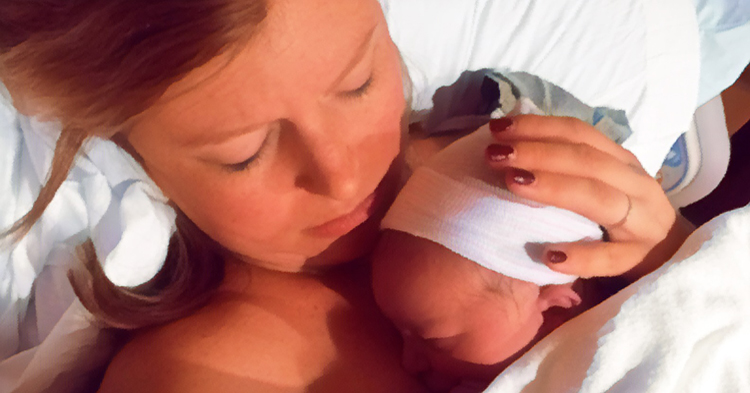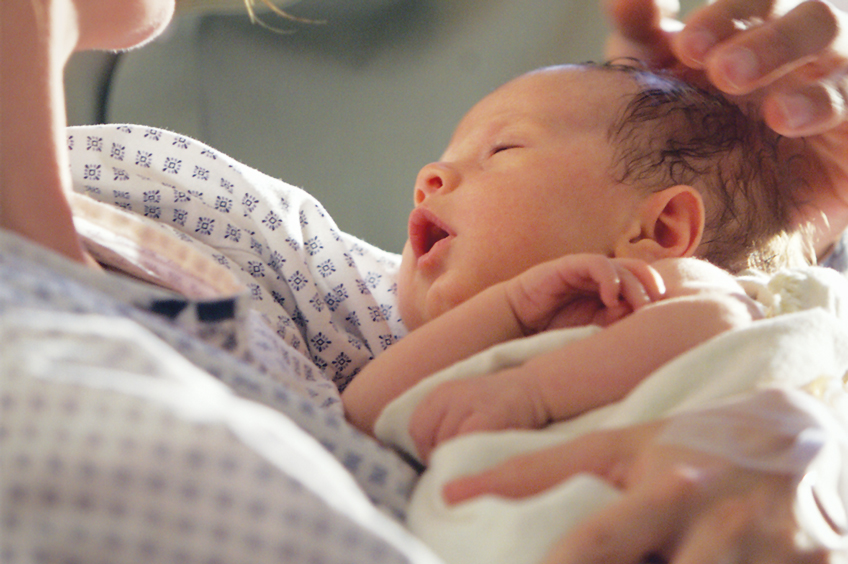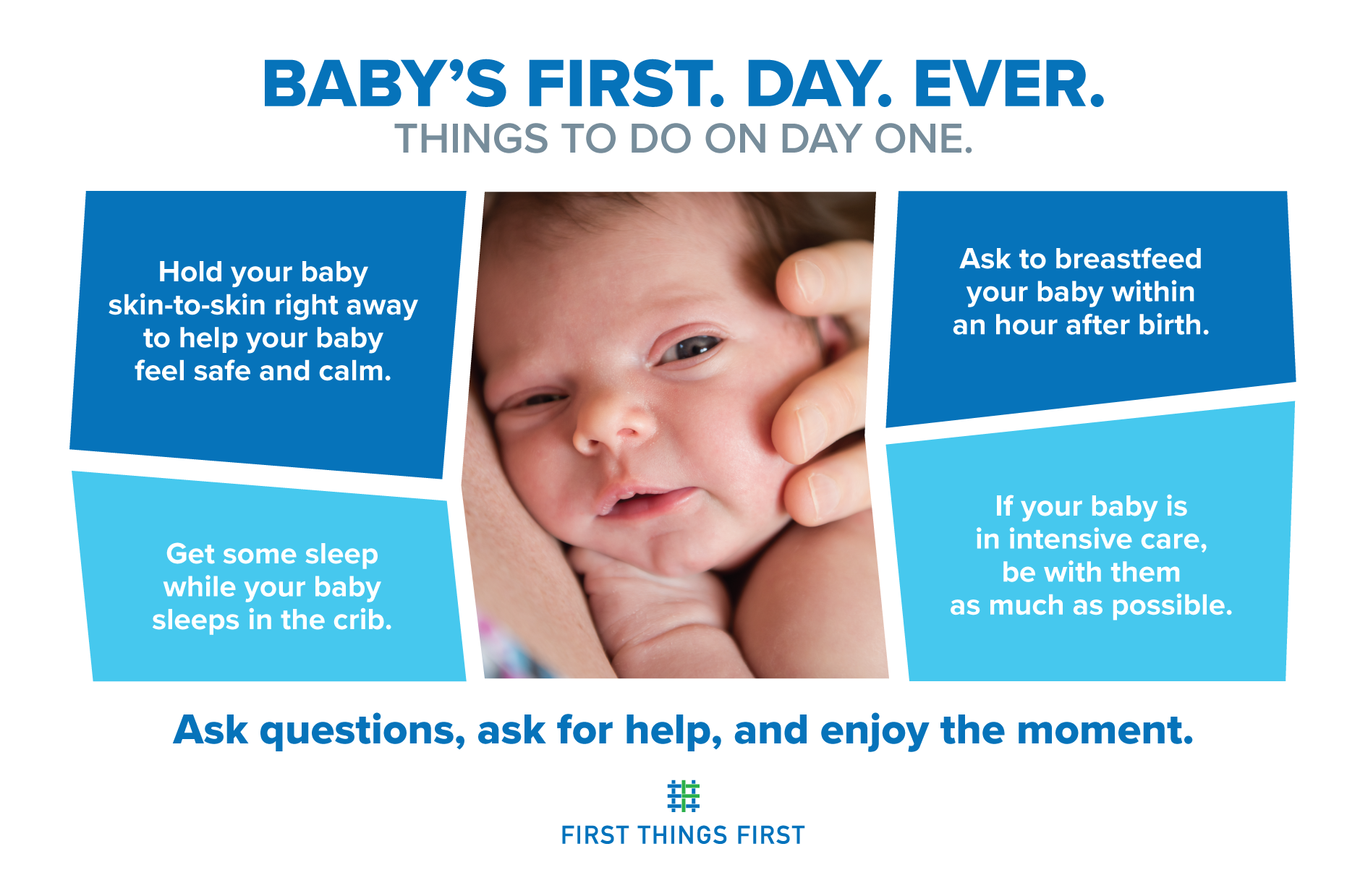Childbirth is unlike any other experience. It can be both emotionally rewarding and physically tiring. Labor and childbirth are personal and unique for everyone—but you can learn what to expect and do some things to be ready.

Your Baby’s First Doctor
Start to look for a doctor for your baby (a pediatrician) before the birth. Babies need regular check-ups starting in their first month, and it can take a while to find a doctor.
Where Will You Give Birth?
Most babies are born in a hospital. You can usually ask to see the rooms for labor and delivery beforehand. Ask if there is a birthing center, which is usually more home-like and comfortable.
- If you want to have your baby at home, ask if your health insurance covers home births. Then talk to a midwife or doctor about what you would like to do.
- If you are in labor, you can go to any hospital emergency room, even if you do not have insurance.

What Will Birth Be Like?
To learn about labor and childbirth, you can take a childbirth class. These classes are also helpful for the person you choose to have with you during labor and birth. This could be your partner or another family member, or a close friend. One benefit of childbirth classes is getting to know other people who are pregnant and getting ready for a birth. Many hospitals offer childbirth classes, and you can also take them online.
Childbirth classes usually cover topics like:
- How to know when you’re in labor
- Ways to relax and reduce pain, including breathing techniques and pain medicine
- The stages of typical labor and birth
- Different positions for labor and birth
- Different types of delivery, including C-sections
In some classes you can create a birth plan. This is when you write out what you want to happen while you are in labor and childbirth. Your plan can include things like who you want to have with you and if you want pain medicine.

Who Will Be With You?
Most pregnant people ask someone to stay with them during labor and giving birth. It helps to have someone keep you company and give you emotional support. They can also bring you things you need. Partners, family members, and close friends usually want to share the experience and help out. You can decide ahead of time who will stay with you, and who can visit you.
What Is a Doula?
You may decide that you want the help of a doula before, during, or after labor and childbirth. Doulas are trained professionals who help parents during labor and childbirth. Doulas are different from doctors or midwives. They do not deliver babies.
Doulas offer information and encouragement. They can help a parent be more comfortable by helping with labor positions, offering massage or other techniques. Doulas can also help parents tell the doctors and nurses what they want and need. Doulas usually stay with birthing parents through all of labor and delivery. Doulas may specialize in serving specific communities, such as parents who speak Spanish or are part of an indigenous community.
What If You Need a C-Section?
Some pregnant people need to give birth by cesarean section (C-section) This is when you have surgery, and the doctor removes your baby from your uterus. This can happen for different reasons. For example, you or your baby might have a health problem that needs to be treated quickly.
A C-section isn’t any better or worse than vaginal birth. Talk to your doctor about the reasons for and against a C-section for you. Even if you have had a C-section before, you may be able to have a vaginal birth now.
Make sure the doctor answers all of your questions and has heard your feelings and wishes about how you deliver your baby.

Your Baby’s First Hours
If you can, holding your baby skin-to-skin right after birth helps you both feel safe and calm. It also helps your baby start breastfeeding. If you plan to try breastfeeding, ask to feed your baby within an hour after birth. You can have a nurse or breastfeeding coach help you.
If your baby is healthy, you can probably have them sleep in the same room with you at the hospital. This is called rooming in, and it lets you spend as much time as possible with your baby. With rooming in you can also feed your baby easily.

Your baby may need to stay in a hospital nursery instead of your room. This often happens when babies are born early or are small. In the nursery, doctors and nurses can closely watch babies’ heart rate, breathing and other health signs. Babies who are born early or small often just need some extra time to grow and get stronger before they go home with their parents.
You may hear the term “NICU,” which stands for neonatal (newborn) intensive care unit. This is the type of hospital nursery with the highest level of care. There are also other levels of hospital care for newborns.
If your baby is in a hospital nursery, spend as much time with them as you can. You may be able to feed them, read to them, hold them or change their diaper.
Your Baby’s First Health Care
|
Going Home with Your Baby
You will need a car seat when you and your baby go home from the hospital. To learn about choosing the right car seat, see the Car Safety page.
After giving birth, it’s normal to have less energy than usual. You will probably want to spend most of your time resting or with your baby.
- It’s a good idea to have some meals already prepared so you don’t need to shop or cook right away.
- You may want to limit visitors until you are more settled and feel more normal.
- You may have family members and close friends who can do household tasks and help you with baby care. Tell them what kinds of help you want and when.
Support in Your Home
First Things First supports free home visiting programs across Arizona that provide 1-on-1 help for expectant women and parents of young children. A trained parent educator will work with you, in the convenience of your own home, to:
- Help you understand how your child is developing.
- Learn positive parenting skills and how to handle challenging behaviors.
- Help your child learn and develop social-emotional skills.
- Do fun activities with your child.
- Connect you with helpful information and resources available in your community.
- Answer your questions and give you emotional support and encouragement.

To learn more about free home visiting programs, contact Strong Families Arizona or the Birth to Five Helpline.
The First Things First Parent Kit was developed in partnership with Health Research for Action/UC Berkeley. © 2022 The Regents of the University of California. Additional video, graphic and other content © 2022 First Things First. All rights reserved.


